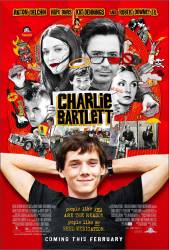Continuity mistake: While Susan and Charlie are passing notes towards the beginning of the film, her cell phone (a Virgin Mobile endorsement plug) continues to flip from a lying down position to a propped up position on her desk between shots throughout the scene.
Continuity mistake: In the scene where Susan is singing "If you want to sing out sing out" during the play and they cut to her father teaching an AP History class, when they show the class a girl in the front row changes, when they cut from a front view to a back view.
Factual error: Although Charlie is apparently in the 'Class of '83', the DSM-TR that he gets from the library is from 1994, and the American psychiatry journals are from 1991.






Answer: It is debatable if there is anything wrong with using cameras, but I can think of some possible answers to "what exactly is wrong with using cameras" at a school yard. Cameras symbolize authority over and oppression of students by the principal (and other authority figures). Cameras are indicative of a lack of trust of ALL students, but usually there is only a small percentage of trouble-makers. The use of cameras unjustly undermines the maturity of most students and makes the students resent the school authority figures. Cameras make the assumption that all the students are engaging (or might engage) in unacceptable behavior, which is offensive to the majority of students who follow the rules. Cameras are contrary to our value of "freedom" and that Uncle Sam does not have a right to constantly monitor citizens. People should not be videotaped in a free society if they have done nothing wrong. Many people simply do not like being videotaped. Cameras can record embarrassing acts.